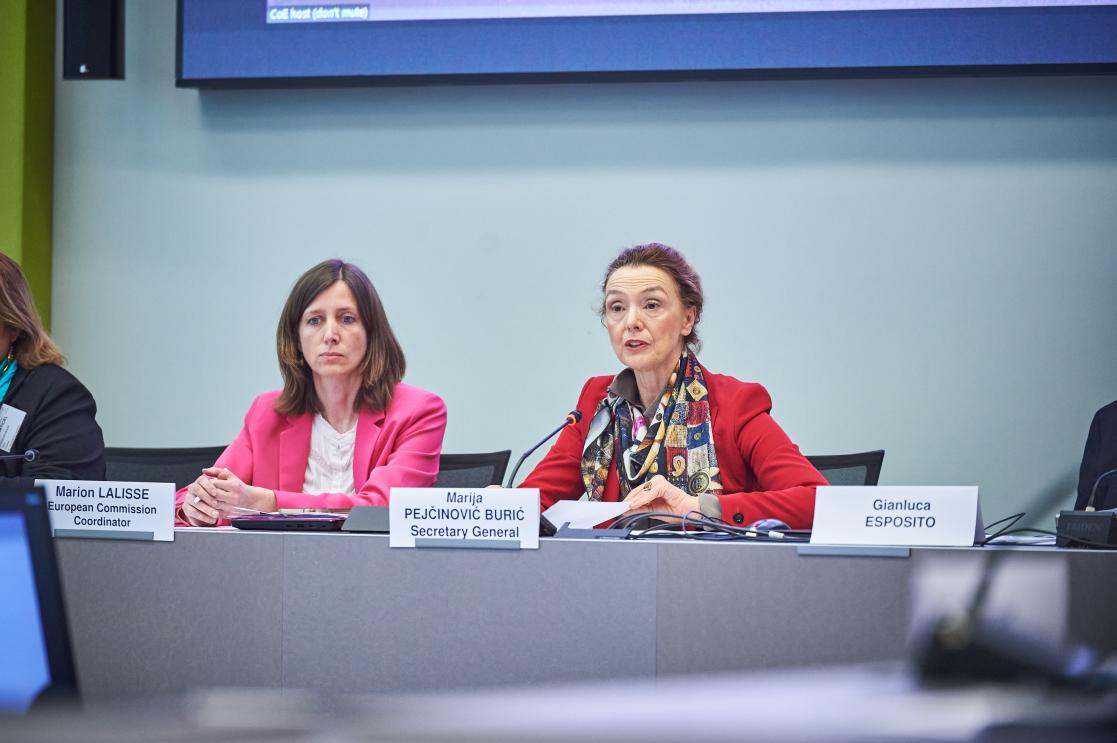Greater international cooperation and coordination is needed to tackle anti-Muslim hatred

The aim of this Coordination meeting was to tackle the concerning increase in anti-Muslim hatred witnessed around the world. This hatred takes on the form of the spread of discriminatory and racist narratives, the widespread use of dehumanizing language, the polarisation of societies, and the increased acts of vandalism made against religious spaces and community centres. The meeting served to recall that extremism and radicalisation must be prevented and countered in all their forms, including violent right-wing extremism that targets Muslims and other groups.
The 15th of March was of a highly symbolic importance, as it marked the UN international day against anti-Muslim hatred. The coordination meeting was chaired by Marion Lalisse, the EC Coordinator on combating anti-Muslim hatred, and co-organised by Alexandre Guessel, Special Representative of the Secretary General of the Council of Europe against antisemitism, anti-Muslim hatred and other forms of religious intolerance and hate crimes. The Secretary General Marija Pejčinović Burić opened the meeting, saying “We must do everything possible to stop [prejudices, discrimination and even violence targeted against Muslim people] using our own tools and working together everything had to be done to ensure the safety, security, and dignity of every Muslim, like every other European”.

Council of Europe
This meeting also followed up on the “Joint Statement of the Coordinators, Special Representatives, Envoy and Ambassadors on Combating Anti-Muslim Hatred and Discrimination” of 29 November 2023.
This meeting was held in the presence of 16 EU Member States, along with the UK, Norway, Switzerland, the Holy See, Türkiye, Albania, Bosnia and Herzegovina, North Macedonia, Ukraine, Moldova, Canada, and the US. Representatives from the UN Alliance of Civilizations and OSCE Office for Democratic Institutions and Human Rights (ODIHR) were also present.
Participants reaffirmed that racism, hatred, and bigotry against Muslims all pose threats to our democratic and pluralistic societies and jeopardize social cohesiveness and inclusion. They also showed their support for individuals who experience discrimination and agreed on the need for increased international cooperation and coordination.





